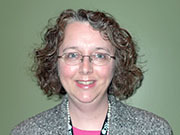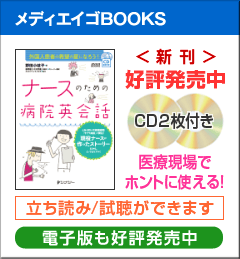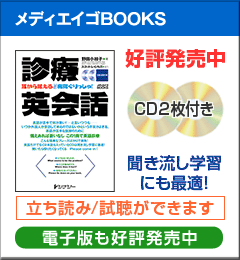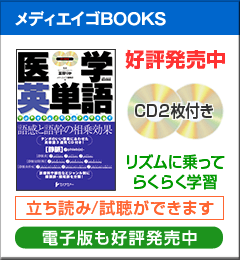インタビュー
「Clinical Science Symposium:高齢者の生理学・スクリーニングツール・抗がん剤投与量,そして生存期間への影響」の共同座長・Gretchen Genevieve Kimmick氏に聞く

本シンポジウムでは,高齢者を対象とした試験4演題が発表された。その最初の2演題「老年腫瘍学におけるG8スクリーニングツールの検証」,「65歳以上の結腸直腸がん患者における包括的高齢者アセスメントと抗がん剤投与量,および全生存期間の関連性」のディスカッサントを務めたデューク大学メディカルセンターのGretchen Genevieve Kimmick氏に,シンポジウム終了後,話を聞いた。(志賀幹太)
| 編集部 | まず,先生がディスカッサントを担当された演題について,発表内容のポイントをご紹介ください。 |
| Kimmick氏 |
Get the Flash Player to see this player.
|
Download(クリックで保存) |
geriatric assessment:高齢者アセスメント
deficits:欠陥,弱点
frail:虚弱な
Vulnerable Elders:脆弱な高齢者
Yes. In this session, we had two abstracts that we’re talking about, different components or different aspects of getting at the geriatric assessment. One was a screener for geriatric assessment that detects patients who need more full geriatric assessment. This abstract from France, Dr. Soubeyran and his colleagues did a study in over 1,400 patients where they screened them with a G8 geriatric screener and compared it to geriatric assessment and found that it was very sensitive for people who had deficits in the components of the geriatric assessment, which is sensitive to people who are frail or may have increased likelihood of having toxicity from treatments for cancer. So that it gives us a large study looking at a geriatric screening tool for patients who are cancer patients and not just the Vulnerable Elders Survey which is the one that suggested by guidelines looking just for frail elderly patients in the community. That’s the largest study, not the first, but the largest study of that.
| 編集部 | 2題目についてはいかがですか。 |
| Kimmick氏 |
Get the Flash Player to see this player.
|
Download(クリックで保存) |
colorectal cancer:結腸直腸がん
exploratory:予備的な,試験的な
depression:うつ状態
cognition:認知力
life expectancy:平均余命
The second study we heard today looked at colorectal cancer patients. It was smaller and more exploratory and they used the Vulnerable Elders Survey. Basically, what it means for practice in the United States is that as right now we might screen for obviously symptoms of patients who are coming in for cancer visits and we might screen for depression and for distress and help people with that, but we’re not screening for geriatric problems like cognition or frailty or things that might indicate that patients have a lower life expectancy or have a higher likelihood of having very severe side effects or dependence - or becoming dependent because of our treatments.
| 編集部 | これらの研究の臨床的意義は何だとお考えですか。 |
| Kimmick氏 |
Get the Flash Player to see this player.
|
Download(クリックで保存) |
pull in:抑制する
geriatrician:老年病専門医
Yes, my conclusions. So in research we have -- usually funded research has money to support nurses and assistants to actually administer 1-hour-long publication. So in research we have a lot of, more people available with time to perform an hour-long geriatric assessment. It’s not practical in our practices. I mean in the United States, we’re seeing, you know, three to six cancer patients in an hour and we don’t have that amount of time. Our nurse may have 5 or 10 minutes for the patient. So for a busy geriatric practice or the busy oncology practice what we’re trying to do is get some kind of screener in, so people can pull in the resources or send patients to a geriatrician as opposed to doing a whole geriatric assessment.
| 編集部 | 高齢者アセスメントは,臨床現場でどう活用されるべきでしょうか。 |
| Kimmick氏 |
Get the Flash Player to see this player.
|
Download(クリックで保存) |
antiemetic medications:制吐剤
supportive:支持的な(支持療法で使われる)
chemotherapy drugs:化学療法剤
I think the status of the field right now is that we are proving that we need to do a geriatric assessment looking at how important it is and then trying to figure out how to make it short enough to fit into a clinical practice or usable enough so that the patient can actually fill out a geriatric screener or a nurse can do it in just a couple of minutes and pick up things like cognition which is so important because patients have to be able to understand what you’re telling them. Very complicated descriptions of antiemetic medications and other supportive medicines and schedules for chemotherapy drugs now that are very complex, and if they just even a little bit have low cognitive status and not something you would recognize on just meeting someone, then you need to refer them and make sure they have extra help at home to make sure they can do things to support them through treatment.



